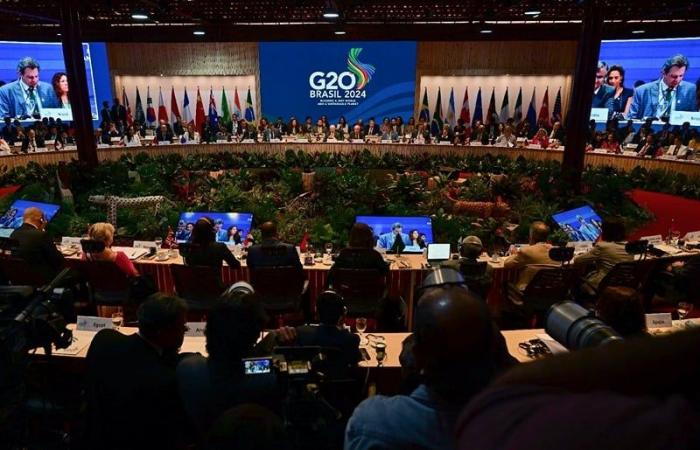Under the Brazilian presidency of the G20, the Global Alliance against Hunger and Poverty was officially launched on Monday, with the aim of strengthening international efforts to eradicate these scourges by 2030.
This Alliance, open for membership since July, already has 147 founding members, including 81 countries, the European Union, the African Union, 24 international organizations, 9 financial institutions and 31 philanthropic foundations and NGOs.
Argentina is the only G20 member country that has not yet announced its membership.
“The Alliance was born in the G20, but its destiny is global. May this summit be marked by the courage to act,” said Brazilian President Luiz Inácio Lula da Silva during his inaugural speech at the G20 Summit in Rio de Janeiro.
“This will be our greatest legacy,” he added.
Sixteen years later after the first meeting of G20 leaders, “the world has gotten worse,” he lamented, noting that “the ultimate symbol of our collective tragedy remains hunger and poverty.”
In 2024, according to Lula, “we will have 733 million people still undernourished. (…) In a world producing nearly 6 billion tonnes of food per year, this is an aberration. And in a context where military spending reaches $2.4 trillion, this is unacceptable.”
“It is up to those gathered around this table to put an end to this plague which dishonors humanity,” he urged.
The result of a year of negotiations led by Brazil, this Alliance is taking shape through actions such as the “2030 Sprints” aimed at eradicating hunger and extreme poverty through large-scale policies and programs.
By 2030, the Alliance aims to reach 500 million people in low- and middle-income countries through income transfer programs, and to expand access to quality school meals for 150 million children. in regions facing child poverty and endemic hunger, and to mobilize billions in credits and donations through multilateral development banks to support these efforts.
The governance of the Alliance will be independent, although linked to the G20, without being restricted to the members of this group alone.
Management of the initiative will be entrusted to a Council of Champions, supported by a Support Mechanism. This governance framework is expected to be fully operational by mid-2025. In the meantime, Brazil will assume a temporary support role to ensure the operation of main activities.






